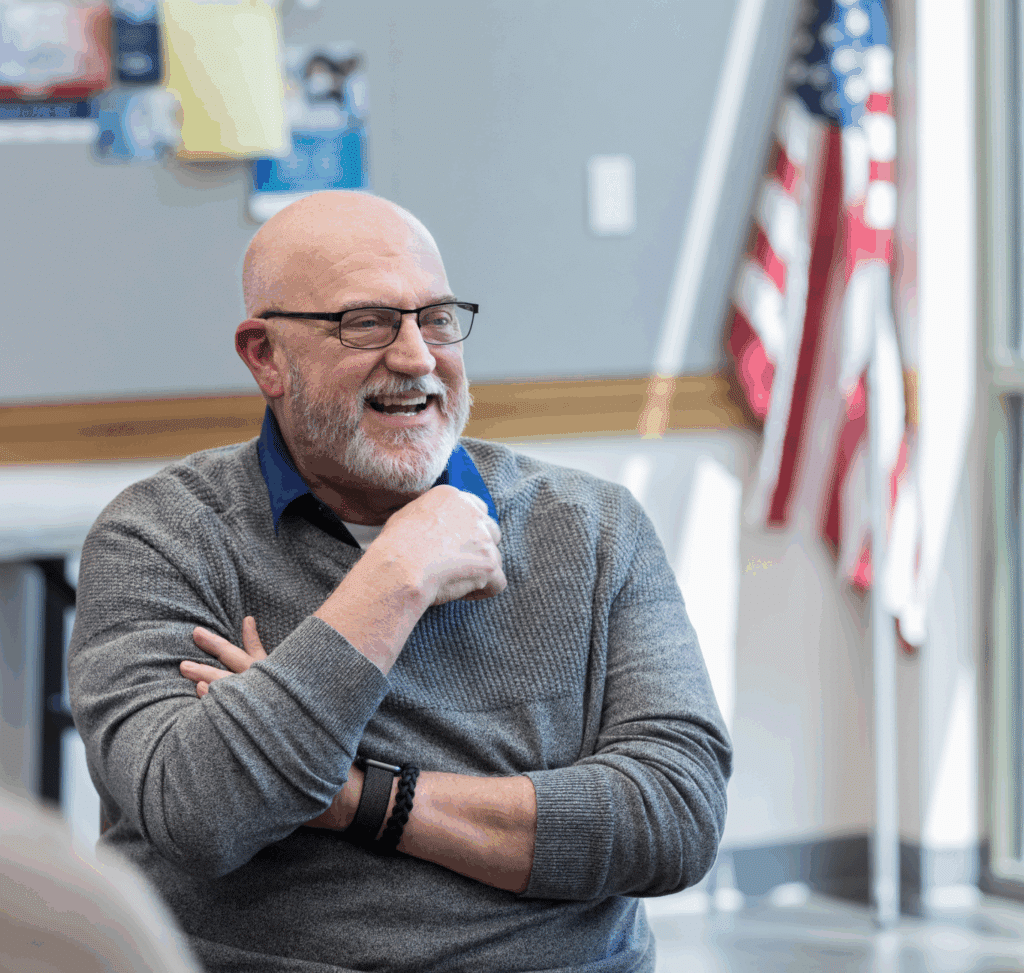Mental Health Referrals From Veterans Affairs Medical Centers: Veteran Affairs Therapy Programs

In fact, the instances of PTSD are higher among veterans than civilians, with 7 out of 100 people (or 7%) experiencing PTSD at some point in their lives.1 In 2022, among all adults in the US, veterans made up 17.2 of suicides per day.2
These statistics highlight a huge reason why VA mental health referrals are so crucial for ensuring timely and appropriate mental health care. If you’re concerned about your mental health or that of a loved one after service, a mental health professional can ensure you get the right treatment for your needs.
This article can also help, as it aims to deepen understanding of the VA mental health referrals process by exploring:
The role the VA plays in mental health referrals- The VA mental health treatment referral process
- Benefits and challenges of finding mental health resources for veterans through the VA
- Answers to frequently asked questions about veteran mental health recovery programs
- Where to find professional mental health support

What Is the Role of the VA in Mental Health Referrals?
One of the VA’s primary responsibilities is screening veterans for mental health concerns during routine checkups and following major life transitions, such as returning from deployment. This might involve assessments and interviews with a clinician using the Diagnostic and Statistical Manual of Mental Disorders (DSM-5) to determine if a mental health condition is present.
Aside from asking veterans about their history, symptoms, and experiences, clinicians at the VA may also use screening tools like:
The Primary Care PTSD Screen for DSM-5 (PC-PTSD-5): A five-item screening tool that helps identify possible PTSD.3- The Columbia Suicide Severity Rating Scale (C-SSRS): Used to determine suicide risk.4
- Patient Health Questionnaire (PHQ-9) and the Beck Depression Inventory (BDI): Tools used to assess for depression and severity of symptoms.
Continuing to assess for any concerns is an important step in knowing when to find therapy programs for Veterans Affairs clients.
The VA Mental Health Treatment Referral Process: How It Works
Veterans Affairs offers mental health resources for veterans through the VA. However, they may decide to refer to outside sources due to long wait times, unavailable services, or the client requesting a program outside of the VA. In these instances, the following can be used as a general guideline for the VA mental health treatment referral process:
- Starting with the initial assessment and screening for mental health concerns.
- Discussing any particular risks or needs with the client to determine what type of program might be appropriate.
- Identifying the right program for the person. The appropriate program might be something like inpatient therapy programs for PTSD and veteran trauma, outpatient treatment for anxiety, medication management for depression, or group therapy for peer support.
- Once the right program is identified, the VA provider initiates contact (with the veteran’s consent) with the treatment program. During the initial contact, the program will ask the provider for the person’s relevant history and records.
After making the referral and helping the veteran start the program, the VA provider typically follows up with the program for any ongoing updates, case management, and support as needed.
Benefits of Therapy Programs for Veterans Affairs Clients
For instance, therapy could help veterans manage symptoms that interfere with everyday life, such as poor sleep and increased agitation. Over time, improvements in these symptoms may contribute to a stronger sense of control and improved well-being. Plus, research supports this benefit.
In particular, it has been shown that those who engage in group therapy often see an increase in social functioning and lower levels of distress.5 At the same time, even short-term counseling shows a reduction in symptoms of PTSD, depression, and anxiety.6
Based on these findings, if you’re struggling with mental health concerns after service, knowing that therapy could help you get your life back on track could be a major source of comfort.
Challenges Veterans Face in Accessing Care
While VA partnerships for mental health care have their benefits, they’re not without some challenges. One of the biggest barriers that veterans face in accessing care is long waitlists or delays in appointments. These delays can discourage people from seeking treatment and even worsen symptoms while they wait for treatment to begin.
Stigma is another barrier veterans often face when accessing mental health care. Though there has been an increase in awareness over recent years, stigma around mental health and trauma still exists. Therefore, veterans may feel ashamed or embarrassed to seek out support. In fact, veterans often face internalized and societal pressure to “just suck it up.”
Finally, the limited availability of specialized programs can impact veterans getting the help they deserve. Not all VA facilities or community partners have the full range of therapies veterans might need, such as trauma-focused treatments like EMDR or DBT. This can leave some veterans with fewer choices or require them to travel long distances to access care.
So while mental health treatment offers a lot of benefits for veterans, there are still barriers that can hinder their care. These barriers are why it’s important to provide trauma-informed care and ongoing advocacy for veterans seeking treatment.
Find Therapy Options Through Mission Connection
For many veterans, accessing therapy through the VA may involve navigating referrals, approvals, and long wait times. At Mission Connection, we work alongside the VA system to make sure your health care is both accessible and centered around your personal needs.
Whether you’re seeking group therapy, trauma-focused care, or holistic options, we provide a wide range of outpatient treatment options. From cognitive behavior therapy and EMDR to meditation and yoga, we’ll work with you to create VA-referred mental health treatment plans that fit your needs.
If you have questions about VA referrals or want to explore therapy options tailored for veterans, our team is available to guide you. Contact us today to take the next step in your recovery.

Frequently Asked Questions About Urgent Care Clinic Referrals
Hopefully, the information about VA mental health referrals in this guide helped you better understand the process. However, if you still have some concerns or questions, the following responses to FAQs about veteran affairs therapy programs could help resolve these.
How Long Does It Take to Get a Referral From the VA Approved?
How long it takes to get approved after a referral depends on the need and urgency of the situation, as well as the type of program you’re seeking. For example, approval times may take longer if you’re looking for a specialized program, like EMDR, or live in an area that lacks services. However, urgent cases, such as those involving safety risks, are often expedited through VA crisis protocols.
How Can Mission Connection Support VA-Referred Patients?
Our programs offer treatment options that include individual counseling, group therapy, and trauma-focused approaches for veterans in need of mental health support. For those with busy schedules, we can even offer telehealth services, meaning therapy can be accessed from your own home. Medication management is also an option, helping those in crisis stabilize enough to benefit from treatment.
What Are the Most Effective Therapy Programs for Military Veterans?
The most effective therapies for veterans are those that focus on trauma, like cognitive processing therapy (CPT), prolonged exposure (PE), and EMDR. Cognitive behavioral therapy (CBT) and family therapy are also highly effective options for addressing symptoms.7
What Is the Most Common Mental Health Condition That Veterans Are Referred For?
PTSD is the most common mental health condition that veterans are referred for. But it’s certainly not the only one. Referrals are also common for depression, anxiety, and bipolar disorder, among other symptoms. Because many veterans experience more than one condition at the same time, referrals often include comprehensive treatment plans that address multiple needs.
What If I’m Waiting for a Referral and Need Immediate Help?
If you are waiting on a referral but need urgent care, you are not alone. There are options for immediate mental health support for former military workers through VA services. For instance, you could call the Veterans Crisis Line by dialing 988 and pressing 1 to talk with someone. Or if you just want to text, you can send a message to 838255. Both these options connect you with trained responders who are available 24/7. Further, these confidential services are open to you even if you’re not yet enrolled in VA health care.
References
- VA.gov | Veterans Affairs. (n.d.). Common reactions after trauma in veterans. U.S. Department of Veterans Affairs. https://www.ptsd.va.gov/understand/common/common_veterans.asp
- Sage, D. (2024, December 19). VA releases 2024 National Veteran Suicide Prevention Annual Report – VA News. U.S. Department of Veterans Affairs. https://news.va.gov/137221/va-2024-suicide-prevention-annual-report/
- Prins, A., Bovin, M. J., Smolenski, D. J., Marx, B. P., Kimerling, R., Jenkins-Guarnieri, M. A., Kaloupek, D. G., Schnurr, P. P., Kaiser, A. P., Leyva, Y. E., & Tiet, Q. Q. (2016). The Primary care PTSD screen for DSM-5 (PC-PTSD-5): Development and evaluation within a veteran primary care sample. Journal of General Internal Medicine, 31(10), 1206–1211. https://doi.org/10.1007/s11606-016-3703-5
- Columbia-Suicide Severity Rating Scale (C-SSRS). (2024, March 28). Columbia University Department of Psychiatry. https://www.columbiapsychiatry.org/research-labs/columbia-suicide-severity-rating-scale-c-ssrs
- Britvić, D., Radelić, N., & Urlić, I. (2006, February 1). Long-term dynamic-oriented group psychotherapy of posttraumatic stress disorder in war veterans: Prospective study of five-year treatment. Psychiatry: Interpersonal and Biological Processes, 69(2), 172–191. https://pmc.ncbi.nlm.nih.gov/articles/PMC2080364/
- Goodson, J., Ponder, W. N., Carbajal, J., & Cassiello-Robbins, C. (2025). Combat veteran mental health outcomes after short-term counseling services. Journal of Veterans Studies, 11(1), 129–141. https://doi.org/10.21061/jvs.v11i1.672
- Campbell, G. M., Biscoe, N., Williamson, V., & Murphy, D. (2024). Evidence-based treatments for PTSD symptoms resulting from military sexual trauma in women veterans: A systematic review. Journal of Military Veteran and Family Health, 10(5), 30–50. https://doi.org/10.3138/jmvfh-2023-0037






